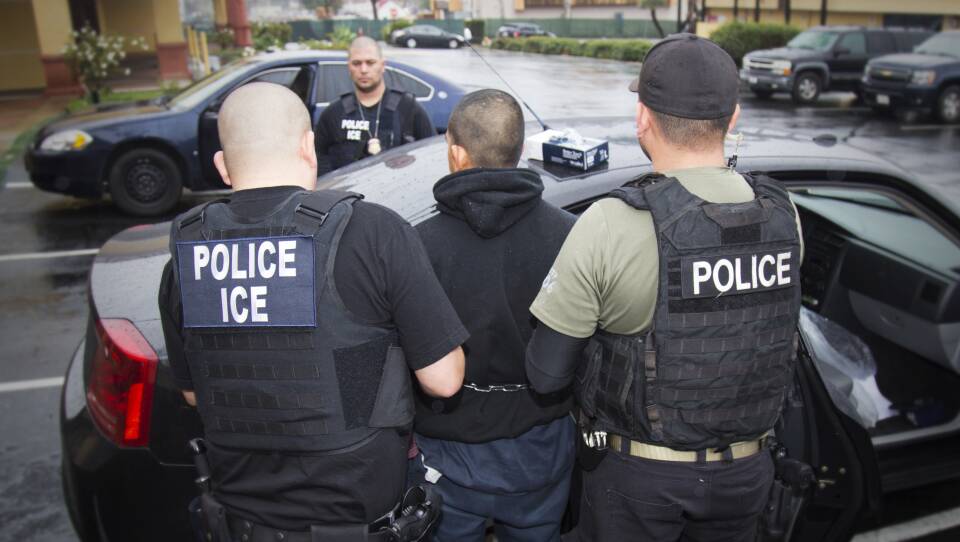About 180 immigrants previously detained in a county jail in Boston are now scattered among jails in New England and western New York state, according to local immigrant rights advocates.
Those immigrants were all transferred just days after Suffolk County Sheriff Steve Tompkins announced he was severing his contract with the U.S. Immigration and Customs Enforcement (ICE).
ICE would not disclose where the male and female immigrants were transferred, but PAIR Project (Political Asylum Immigration Representation), a nonprofit in Boston, said that most of the men were moved to jails with ICE contracts in Plymouth and Franklin counties and in Rhode Island, and about 20 women transferred to a federal detention site in Batavia, N.Y. – six and a half hours west of Boston.
“For a lot of our families, Suffolk was the jail that they had the most access to because of the public transportation,” said Elena Noureddine, who heads up the detention program at PAIR. Her caseload has risen from about 700 immigrants a year to 1,000, she said.
Noureddine and other local immigration lawyers worry that it will become much harder for these immigrants to get access to legal help in jails far away from the resources in Boston.
“It’s very bad,” said Susan Church, an immigration lawyer in Cambridge whose client was among the women transferred to the farthest site in New York. “She's been detained for a really long time. Everything's going to be further delayed if we have to start from the beginning with the new judge. And if so, that also means with a new attorney, because I can't represent her in Batavia, New York.”
Immigration activists had protested outside Suffolk County jail last July, calling for Sheriff Tompkins break ties with ICE.
But Tompkins has stressed that his decision to do just that was not based on the controversial politics around immigration enforcement. He told WGBH News earlier this month that he wanted to make room in his jails for female inmates from neighboring counties — Essex, Norfolk and Plymouth — that don’t have units for women.
Church said that while she appreciates the local activism around advocating for immigrants caught up in the increased federal enforcement, the effect of an ICE detention facility leaving Boston is now harder on immigrants in detention and their families.
“If you shut down ICE facilities, the only place for these people to go is out of the jurisdiction, which means they don't have access to lawyers and they don't have access to family members,” Church said.
Noureddine said that about half the immigrants being held in Suffolk County had been living in the Boston area.




